
Written By: Beth Ehrensberger, RD
Title: Registered Dietitian
Alumni: University of Tennessee, Knoxville
Last Updated on:

There are several angles to consider when you’re making a food purchase: the health of the product, the taste, and its impact on the environment. These days, as greater selection abounds, more shoppers are seeking sustainably raised food – that is, food that is not only healthy for the consumer, but produced in an environmentally friendly way and ethically produced with respect to the animals and farm employees. But for most shoppers, even with the best intentions, that sometimes makes tricky work of choosing what to buy. Learning to eat sustainably takes a little practice as you figure out how to avoid meaningless or tricky claims and find truly green foods. There are a lot of labels touting sustainable foods, but the following five certifications are some of the most widespread and trustworthy.
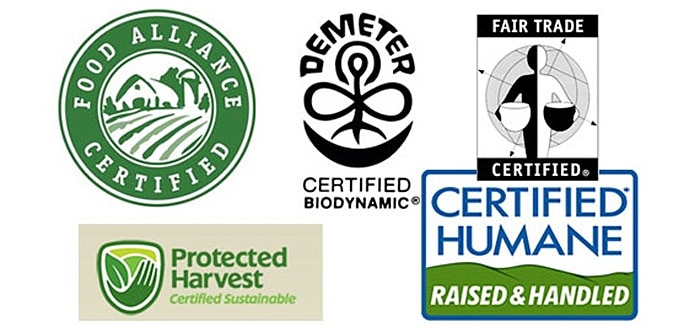
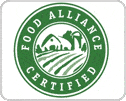 A comprehensive certification that uses rigorous standards to guarantee safe and fair working conditions, humane animal treatment, and careful stewardship of ecosystems. This label can be found on a wide range of foods like produce, frozen foods, dairy, grains, meats, and canned foods.
A comprehensive certification that uses rigorous standards to guarantee safe and fair working conditions, humane animal treatment, and careful stewardship of ecosystems. This label can be found on a wide range of foods like produce, frozen foods, dairy, grains, meats, and canned foods.
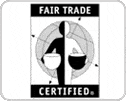 A certification that ensures farm workers in developing nations receive a fair price for their product and ensures some of the most harmful pesticides are avoided, as well as forced child labor. Look for this label to lead you to better choices in buying coffee, cocoa, sugar, rice, and some tropical fruit, like bananas.
A certification that ensures farm workers in developing nations receive a fair price for their product and ensures some of the most harmful pesticides are avoided, as well as forced child labor. Look for this label to lead you to better choices in buying coffee, cocoa, sugar, rice, and some tropical fruit, like bananas.
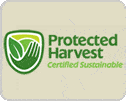 Foods that carry this label are produced in an environment that encourages a holistic approach to farming – and minimal use of pesticides. Look for it on processed tomatoes, potatoes, citrus, and strawberries.
Foods that carry this label are produced in an environment that encourages a holistic approach to farming – and minimal use of pesticides. Look for it on processed tomatoes, potatoes, citrus, and strawberries.
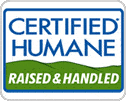 One of the best ways to reduce your impact on the environment with what you eat is to choose to go meatless for a couple of meals during the week with legumes, seeds, or beans. But if you’re eating meat or other animal products, this label ensures that what you eat is raised without antibiotics, kept in humane conditions, and given access to clean water. Find it on beef, chicken, lamb, pork, turkey, and eggs.
One of the best ways to reduce your impact on the environment with what you eat is to choose to go meatless for a couple of meals during the week with legumes, seeds, or beans. But if you’re eating meat or other animal products, this label ensures that what you eat is raised without antibiotics, kept in humane conditions, and given access to clean water. Find it on beef, chicken, lamb, pork, turkey, and eggs.
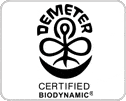 This certification indicates that food products were grown without the use of synthetic pesticides, fertilizers, or animal by-products. Additionally, products that carry the certification are free from genetic engineering. Look for the label on produce, cheese, eggs, beef, chicken, and pork.
This certification indicates that food products were grown without the use of synthetic pesticides, fertilizers, or animal by-products. Additionally, products that carry the certification are free from genetic engineering. Look for the label on produce, cheese, eggs, beef, chicken, and pork.
Of course, it’s not always possible to find foods that are labeled, so in the absence of labels, look for locally produced products. Though “local” is not always synonymous with sustainable, with these products, you’re at least choosing food that has used fewer resources to get to your table. Also, check out the Consumers Union Eco-labels Center. This website is a great resource to use to learn more about sustainable foods and to keep tabs on other trustworthy labels you may see when you’re shopping. Note: It seems this website has been taken offline.
Of course, the best way to guarantee the sustainability of the food you eat is to grow it yourself! But if you’re not up for the task, take your label reading to the next level – from just nutritionally sound to nutritionally AND environmentally sound – using these examples of sustainable food labels.
Alumni: University of Tennessee, Knoxville – Beth Sumrell Ehrensberger is a Registered Dietitian and holds a Master Degree in Public Health. An experienced nutrition counselor, writer and public speaker, Beth specializes in translating complex nutrition information into practical concepts. Beth was awarded a Nutrition Communications Fellowship to the National Cancer Institute, and has worked on the internationally recognized Nutrition Action Healthletter of the Center for Science in the Public Interest.
grocery aisle, seasonal celebrations